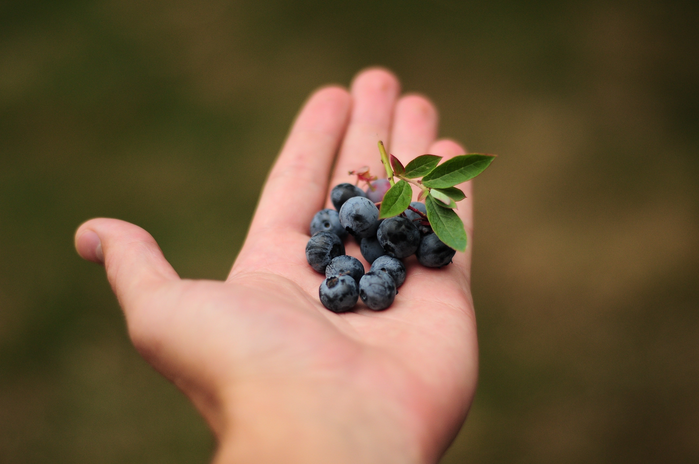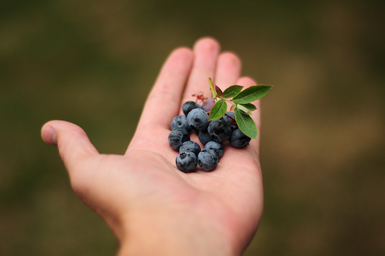If you’ve ever experienced a night of one too many drinks, you likely have woken up to this scene at least once: your head is pounding, your eye makeup is smeared, your party clothes are either still on your body or in a heap on your floor alongside all the contents of your purse and—oh, what’s that? AN EMPTY PIZZA BOX? NO! NOT AGAIN! The realization that you singlehandedly polished off a large pizza (while sending texts that you’ll regret in the morning) and the accompanying food baby in your stomach may haunt you for the rest of the day, yet you may still find yourself shoveling spoonfuls of Ben and Jerry’s into your mouth the next time you drink. So what gives? What is this dreaded “drunk eating” phenomenon, why does it happen, and how can we kick this habit for good? Since so many collegiettes are all too familiar with eating unhealthily under the influence, Her Campus is here to answer those questions.
What is “drunk eating” and why do we do it?
Drunk eating is the mindless consumption of food—typically unhealthy food and in large portions—while under the influence of alcohol. Since alcohol impairs our judgment, decision-making abilities, and self-control, it is no surprise that we are less able to regulate what and how much we are eating, especially since eating healthily is something that requires so much willpower to begin with.
Dr. Jennifer Wider: nationally renowned women’s health expert and author of The Doctor’s Complete College Girls’ Health Guide, explains that there is actually scientific evidence to explain why drunk eating occurs. “There are several theories on why people eat more when they are drunk,” she says. “One study from Dutch researchers found that it actually took people longer to feel full when they drank alcohol… that their bodies didn’t recognize the alcohol calories as much as calories from other sources like protein.” What this means is that although you are consuming calories from the alcohol, your body and mind are not really registering those calories—and then on top of that, it is taking you longer to feel full so you will eat more than you normally would.
Dr. Ria Gilday, Naturopathic Doctor and Certified Nutritionist at Queen’s Health Centers and author of the new book Healthy Weight Loss; Fast, Easy, and Safe further explains the science behind drunk eating by pointing to the fact that alcohol is “technically sugar,” which means that it is absorbed into the bloodstream right away. “The body’s natural defense against elevated blood is to raise insulin level and rid the sugar from blood. When insulin is released it will cause the blood sugar levels drop rapidly (by burning it and storing it as fat) but this response provokes a vicious cycle of wanting more sugar and fats, hence the person drinks more, or eats more,” she says.
Unfortunately, it gets worse—alcohol does not just trigger hunger for anything, but for specific types of foods that happen to be relatively unhealthy. You’ve probably seen more drunk people chow down on carbo-loaded treats than salads, right? Dr. Ria asserts that the reason why we mainly crave carbohydrates when drunk is because “those are the foods that will provide fast relief of the symptoms associated with low blood glucose levels.”
Dr. Wider offers more evidence for our unhealthy drunken food choices. “A study from Northwestern U found that people may crave greasy or more fattening foods when drinking alcohol—that the cravings were both physical and emotional,” she says. She adds, “people don’t crave healthy foods when they are drinking alcohol because it is thought that alcohol enhances the taste of salt and fat… that’s why certain foods taste good when you are intoxicated.”
Our less-than-healthy choices can also be attributed to the fact that, as collegiettes, we face a lot of pressure to carefully monitor what we eat on a daily basis, so the second we lose some of our inhibition and control, we may feel tempted to go on an all-out binge on whatever food is laying around (or just a phone call away from being delivered to our door) to make up for feeling restricted.
“I find that my friends are very conscious of what they eat throughout the day and try to maintain a healthy diet, but then when we get back home from a night out we all go straight to the kitchen and will eat everything in sight,” Meredith from the University of Michigan says. “Then, in the morning everyone either regrets it so much or doesn’t even remember how much they ate… the other morning the first thing my friend asked me when she woke up was, ‘did I drunk eat last night? Please say no.’”
[pagebreak]
What are the consequences?
It’s no secret that the inevitable result of making a habit of drunk eating is weight gain—it’s why we wake up with not just a full stomach, but also a nagging sense of regret.
“Drunk eating will affect your weight and contribute to weight gain in the same way eating when you aren’t intoxicated will cause you to gain weight,” Dr. Wider explains. “More calories = more weight gained on top of the calories from alcoholic beverages, which can really add up!”
Dr. Ria confirms that those calories from alcohol certainly do add up, and in the worst way: “Alcohol is liquid sugar, without the benefit of fiber and a nutrient to metabolize it, alcohol is like a guest who comes to dinner eats your food and robs your house,” she says. “To metabolize the alcohol requires significant amount of vitamins, minerals, and co-enzymes… in absence of the nutrients and in excess of alcohol, the only thing the body can do with alcohol is store it as fat.” Yikes!
Since the foods we eat when drunk tend to be unhealthy junk foods laden with fat (especially saturated and trans fats, the most unhealthy kinds), sugar, and sodium you are not just damaging your waistline, but your overall health as well. According to the Mayo Clinic the overconsumption of saturated fat, cholesterol, salt, and sugar—and the resulting weight gain—can put you at risk for developing conditions such as diabetes, heart disease, and high blood pressure. While the occasional late-night drunken pizza order obviously won’t destroy your health and body, it is important to remember that it can all add up over four years of the college lifestyle. Plus, being aware of these long-term health consequences may help you in your quest to curb your drunk eating!
How can we avoid it?
On that note, what can we do to prevent ourselves from drunk eating? These tips may be easier said than done, but if you make a concentrated effort to test them out, you may be pleasantly surprised by your increased ability to control your drunk eating.
- “Just think to yourself before reaching for that second bowl of cereal that no matter how much you want in the moment, you’re going to wish you hadn’t had it in the morning.” –Jamie Goddard, University of Michigan
- “Don’t drink in excess or to the point you are not aware or in control of your actions. It’s dangerous on so many levels.” – Dr. Wider
- “Eat before you party… eat a meal with high content of fat and protein, for example steak, chicken or fish, if you are a vegetarian eat couple handfuls of nuts such as walnuts.” – Dr. Ria
- Keep healthy snacks (fruits, veggies, oatmeal, eggs, sliced turkey, yogurt, granola bars, etc.) in your house or room so that when you come back and crave food, you will have nutritious options and won’t have to resort to pizza delivery.
- Only take one serving of your snack of choice and then put the rest away, rather than plopping down in front of the TV with the entire bag—this will keep you from mindlessly munching.
- Make a habit of going straight to bed when you come home instead of straight to the kitchen—by just removing yourself from the situation, it will be infinitely easier to say no to the food.
- Enlist your friends to help prevent you from stopping at the local burrito joint on your way home—if you make the battle against drunk eating a group effort, it’ll be much easier to succeed.
Additionally, both experts emphasize the importance of consuming water before, during, and after drinking for several reasons. Dr. Ria advises to “above all, drink a substantial amount of water before and during [consuming alcohol], it will lower your consumption of alcohol, and dilute blood concentration of alcohol.” Dr. Wider explains that “rehydration is key before you go to sleep post drinking” and therefore suggests drinking “water or other non-caffeinated beverages before going to bed, it will help ease hangover symptoms the next day.”
Alcohol has enough calories on its own, so if we get in the habit of scarfing down three family-size bags of chips every time we drink, we’ll just get ourselves hat much closer to the Freshman (or sophomore, junior, or senior) 15—and we know that’s no good for our health. So hopefully by knowing the science behind drunk eating and having some tips to stop us from indulging when we’re in the moment, we’ll finally be able to kick the habit straight to the curb.
Do you have any tried and true strategies for nipping drunk eating in the bud? Leave a comment!

